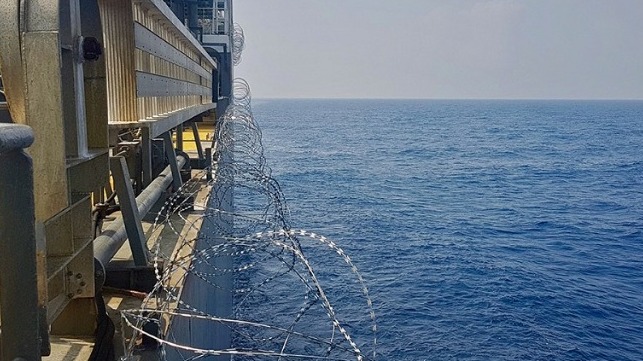Although shipmanagers and owners are taking ever greater steps to protect their crews, the fact is that piracy is rife throughout parts of Asia, Africa and the Americas and it is likely that on any day of the year, a vessel will have been boarded by pirates and the crew subjected to a nightmare experience.
Any crew suffering this chilling event will be impacted for an extended period of time, as will their families. But there are steps that can be taken by both hostages and their employers that will help to minimise the negative impact according to Charles Watkins, Founder of Mental Health Support Solutions (MHSS).
“Sadly this is not an uncommon occurrence,” he said. “Recently we have seen an incident on the Monjasa Reformer, a Danish oil tanker which was boarded in March, forcing the crew of 16 to lock themselves away in the ship’s safe room. They have just been rescued after more than five weeks under exceptionally challenging circumstances and my thoughts are with them and their loved ones. I hope that their employers and families understand that every individual will have a different response to the events and recovery will take place at a different pace for each of them.”
MHSS has worked with many seafarers following traumatic situations and has seen that the consequences may take as long as six months after the event to appear. The emotions felt during the ordeal, fear of death, extreme anxiety, helplessness, sadness, anger, a strong longing to escape the situation, and a sense of being out of control, can all lead to short- and long-term effects. Short term some may suffer nightmares, compulsions, or an array of emotions like fear, horror, anger, guilt, or shame. Others may experience feelings of detachment, dissociative reactions (e.g. flashbacks), depersonalisation (feelings of being removed from themselves), and being overly aware of potential threats.

Long-term effects may be even more debilitating in that they can persist over a much longer period, these can include an inability to experience positive emotions, avoiding going back to sea all together, or being treated differently by colleagues onboard after returning to work.
He continues, “It is really important for hostages to seek support from clinical psychologists and therapists once their ordeal is over. Doing this at an early stage can stabilise and start to decrease the symptoms of post-traumatic stress and help with understanding the connection between body and mind which, in itself, will help to alleviate feelings of anxiety and helplessness. What is more, talking to a professional can help them to understand that their responses are normal and that others go through similar periods of adjustment with similar symptoms. Equally important is learning how to focus on breathing when experiencing fear – fear changes the normal breathing patterns, which in turn can exacerbate feelings of anxiety.
“ In addition to talking with a clinician, they should accept any help and support offered by friends and family. They may be inclined to protect their friends and families from hearing about their experiences but it is actually beneficial for everyone if they can talk with their loved ones.”
It is not only the hostages themselves who are affected by the ordeal, but also their loved ones waiting at home for news. Shipmanagers and owners should ensure that they keep very close contact with the families throughout the course of the kidnap situation. Even if there is no new information, they should respond to families swiftly and regularly. Companies should be equally aware of the impact on crew working on their other vessels who may be friends of the hostages or have sailed with them in the past. It is a difficult circumstance for everyone involved so communication is key as is demonstrating that preventative strategies have been put in place to ensure crew security in the future.
Source: Mental Health Support Solutions (MHSS).





